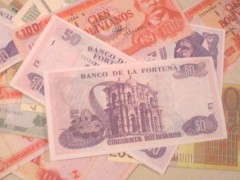-

La austeridad del Presidente
Abstract: In Bolivia, the forced austerity is poverty. Poverty in a very rich country, rich in minerals, oil and its people, but a long history of mishandling of the public finances has led us to a deeply divided society. Our current president however, gave a different tone to things in 2006 […]
Read all posts from ‘Austerity: Less is More?’
-

Does quiet on the streets mean austerity has been accepted in Lithuania?
The austerity issue is based on spending less. But if governments spend less, people believe they are being robbed of their jobs and income, and citizens start protesting in the streets. Yet despite severe public spending cuts in Lithuania of a relative magnitude to those in Spain and Greece, Lithuanians […]
-

Austerity without protests: how to do it?
In February and March 2011 thousands of citizens organized through social networks came out to protest in Zagreb against the worsening social and economic situation in Croatia. In January 2012 protests against austerity measures in Bucharest turned violent. In February 2013 the government of Bulgaria fell because of protests in […]
-

Austerity for growth? Greater European integration could be the emergency exit…..
Austerity has never been mentioned in the Italian debate until now, unlike asperity, a lighter word that also implies future perspectives of growth. The promise of a path of asperity leading to economic growth has been the ‘mantra’ of Mario Monti’s government, and Enrico Letta, the current prime minister has […]
-

Austerity in Europe is a joke for the rest of the world
With all due respect to Mr. Hollande, not only is the crisis not yet over, but, as Mr. Piñera said, the best is yet to come. Latin American, which has long been considered a financial disaster zone, has turned round and given this traditional perception the lie. The unprecedented stability and prosperity […]
